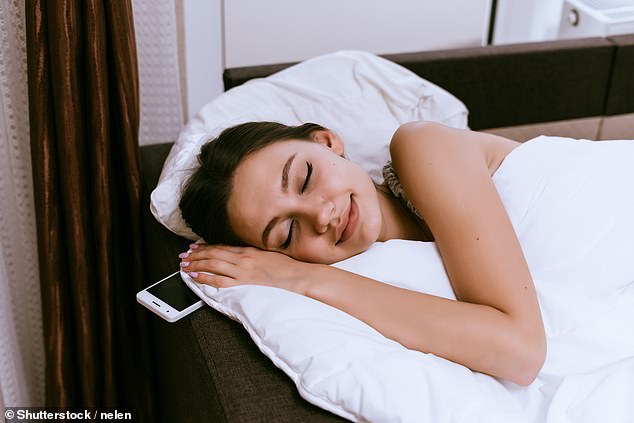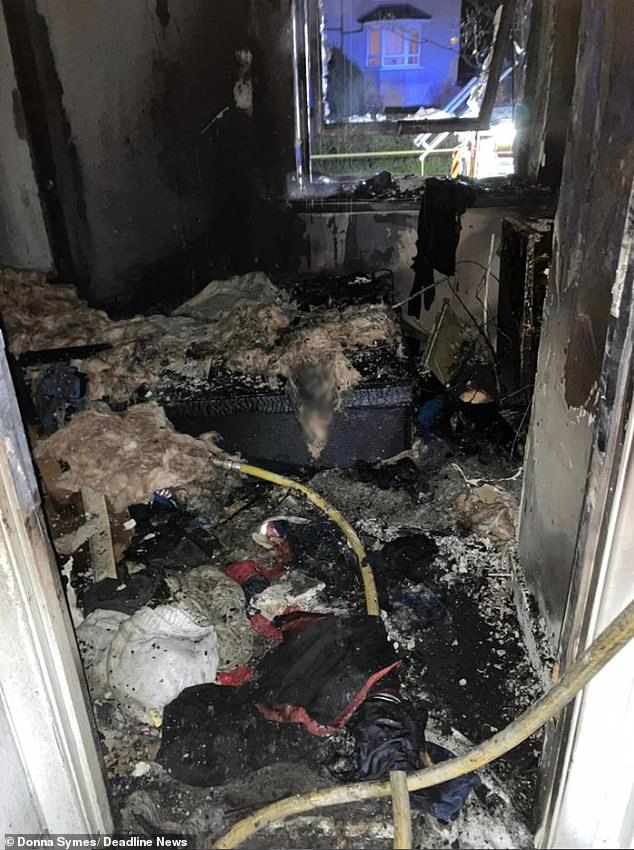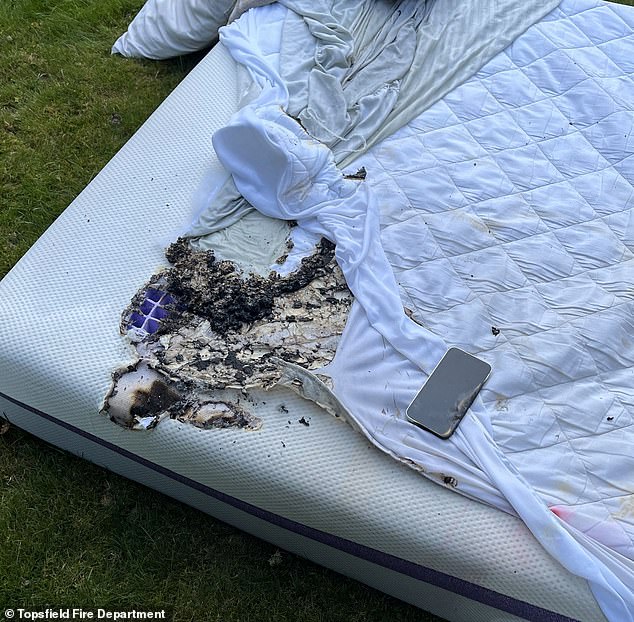Whether it’s to send a ‘Goodnight’ message, play relaxing music, or set an alarm for the morning, many of us like to keep our phones near our bed at night.
But while this can be useful, there’s one dangerous habit that people should stop immediately, experts say.
Apple has issued a warning about charging your iPhone under your pillow, as it can easily overheat and become a potential fire hazard.
It comes as the UK has baked in a four-day heatwave with temperatures in parts of England reaching 33C.
And it adds to previous concerns that dirt and dust in the charging port of phones can also pose a fire risk.
‘Use common sense to avoid situations where your skin is in contact with a device, its power adapter, or a wireless charger when it’s operating or connected to a power source for long periods of time,’ Apple’s website reads.
‘For example, don’t sleep on a device, power adapter, or wireless charger, or place them under a blanket, pillow, or your body, when it’s connected to a power source.
‘Keep your iPhone, the power adapter, and any wireless charger in a well-ventilated area when in use or charging.’

It might feel like a good idea to sleep with your phone close, but experts have warned that charging it under your pillow or a blanket could pose a fire safety risk (stock image)

A family were left devastated after their home went up in flames because of a phone charger that was left plugged in beside the bed. Donna Symes has warned others to make sure their electronics chargers are unplugged and not overheating following the horrific fire at her home in Glasgow
Apple warns that failure to follow these safety instructions ‘could result in fire, electric shock, injury or damage to iPhone or other property.’
Firechief Global, who provide fire safety solutions in the UK, has also warned that charging your phone under a pillow or blanket poses a considerable risk of fire.
‘Phones generate heat during charging, and covering them with pillows or blankets can tap that heat, increasing the risk of overheating and potentially causing a fire,’ Laurie Pollard, managing director, said.
Overcharging – leaving phones on charge all night – is also a leading cause of fires in devices with lithium-ion batteries, he said.
He advised against charging phones on bedside tables, especially those made of combustible materials, to reduce the risk of fire.
Instead, people should charge their device on open, flat surfaces away from flammable materials to mitigate these risks.
Although modern smartphones have systems to prevent overcharging, the risk remains if these systems fail.
Sleep experts have also warned that sleeping with your phone close to you can have negative effects on your sleep quality.

Last year, a Massachusetts teen was set on fire after her iPhone blew up while connected to a portable charger she purchased on Amazon
Constant notifications and screen light can disrupt sleep patterns.
This can prevent people from achieving deep, restorative sleep.
Meanwhile some people develop a cycle of dependency created by the need to check notifications.
Dr Ana Brito, a certified sleep expert at the London School of Childcare Studies, advocates for a tech-free zone at least an hour before bedtime to improve sleep.












